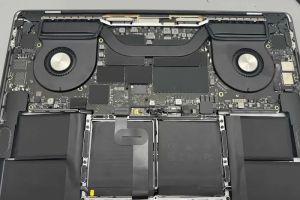How Much Do Computer Repair Technicians Cost? A Guide to Pricing and Services
- 1. Factors That Affect Computer Repair Costs
- 2. Average Cost of Common Computer Repairs
- 3. Why Hiring a Computer Repair Technician May Be Worth the Investment
- 4. How to Find a Reliable Computer Repair Technician
1. Factors That Affect Computer Repair Costs
As someone who has had to repair computers multiple times, I’ve learned that the cost of hiring a computer repair technician can vary significantly depending on several factors. The type of repair needed, the technician’s experience, the location, and even the brand of the device can all influence the final price. Understanding these factors can help you better estimate how much your repair might cost before you hire a technician.
One of the biggest influences on repair costs is the nature of the problem itself. If your computer is experiencing a hardware issue, such as a broken screen or faulty hard drive, it is likely to be more expensive than a software-related issue like a virus or system glitch. I found that hardware repairs tend to require more time and expertise, driving up the price. For example, replacing a screen or repairing a motherboard can cost anywhere from $100 to $500 or more, depending on the complexity of the issue.
Another factor is the technician’s experience and expertise. Some technicians charge premium rates for their services if they have specialized skills or certifications. In my experience, I’ve found that while paying a bit more for an experienced technician might cost more upfront, it often results in a more efficient and high-quality repair.

Action Computers Inc. -- Denver Location
2890 S Colorado Blvd F, Denver, CO 80222, USA
2. Average Cost of Common Computer Repairs
When I had my laptop repaired a few months ago, I was curious about the going rates for computer repairs, so I did some research and spoke with a few technicians. Here are some of the most common repairs and their average costs:
- Screen Replacement: If you’ve ever cracked your laptop or desktop screen, you know that this repair can be costly. Depending on the make and model of your computer, the cost for screen replacement typically ranges from $150 to $350. However, if you have a high-end laptop like a MacBook, the repair can easily exceed $500.
- Battery Replacement: Replacing a laptop battery is generally one of the less expensive repairs, costing anywhere from $50 to $150. However, the cost may increase if the battery is a special model or the technician needs to disassemble the computer to access it.
- Hard Drive Replacement: If your hard drive fails, you’ll need to replace it to recover your data. The cost of replacing a hard drive can range from $100 to $300, depending on the size and speed of the new drive. If your repair includes data recovery services, it may be higher.
- Software Troubleshooting: Simple software issues, like fixing system crashes or dealing with viruses, typically cost between $50 and $150. This price varies depending on the complexity of the problem and how much time the technician spends diagnosing and fixing the issue.
- Motherboard Repair: If your motherboard is damaged, it can be one of the most expensive repairs. Depending on the damage, motherboard repairs can range from $250 to $500 or more. In some cases, the repair may involve replacing the entire motherboard, which can drive up the cost significantly.
These costs are based on my own experience and research, but keep in mind that the price can vary depending on where you live. In larger cities, technicians may charge higher rates due to the cost of living, while smaller towns may offer more competitive prices. Always be sure to get an estimate before proceeding with a repair.

Fix It Computer Repair
2638 Geranium Ln, Fort Collins, CO 80525, USA
3. Why Hiring a Computer Repair Technician May Be Worth the Investment
While it’s tempting to try fixing your computer issues on your own, there are several reasons why hiring a professional technician is worth the investment. I’ve personally experienced the frustration of attempting DIY repairs and realized that there’s no substitute for professional expertise. Here’s why:
- Expertise: Computer repair technicians are trained to diagnose and fix a wide range of issues. Whether it’s a hardware malfunction or a software bug, they have the skills to solve the problem quickly and efficiently. When I tried to fix my own laptop screen, I spent hours online watching tutorials and still didn’t get it right. A technician would have completed the repair in less time and with a higher success rate.
- Warranty and Guarantees: Many professional repair shops offer warranties or guarantees on their services. This gives you peace of mind knowing that if the problem returns after the repair, they’ll fix it for free. This was one of the key factors that made me choose a professional service over DIY attempts.
- Time-Saving: In my case, attempting to fix a problem on my own often led to more delays and frustration. Hiring a technician saved me time and allowed me to get back to work without the added stress of a broken computer. A professional can diagnose and fix issues quickly, saving you from wasting hours troubleshooting.
- Data Protection: Repair technicians are also experts in data recovery, which is crucial if you’ve experienced a system crash or hard drive failure. I’ve used technicians to recover valuable data in the past, and they were able to save important files that I thought were lost forever.
4. How to Find a Reliable Computer Repair Technician
Finding a trustworthy and skilled computer repair technician can be a challenge, but there are a few key factors to consider when choosing a service. Over the years, I’ve learned how to identify reliable technicians who will offer quality service without overcharging. Here’s what I look for when hiring a technician:
- Experience and Credentials: Always check the technician’s experience and certifications. I prefer to hire someone with at least a few years of experience and relevant certifications, such as CompTIA A+ or Microsoft Certified Professional (MCP). This shows that they have the necessary knowledge to handle your repair.
- Reviews and Recommendations: I always read online reviews and ask for recommendations from friends and family. Positive feedback is a good indicator of a technician’s quality of service, while multiple complaints or poor ratings can be a red flag.
- Transparent Pricing: Make sure to get an estimate before agreeing to any work. A reliable technician should be transparent about their pricing and explain what you’re paying for. I’ve encountered technicians who are upfront about the cost and will give me an estimate before starting the job, which builds trust.
- Guarantees: As I mentioned earlier, I always ask if the technician offers a warranty on their work. This gives me peace of mind knowing that if the problem isn’t fixed, I can return to have it addressed without paying again.
By doing a little research and considering these factors, you can find a technician who will provide professional and affordable services.





























